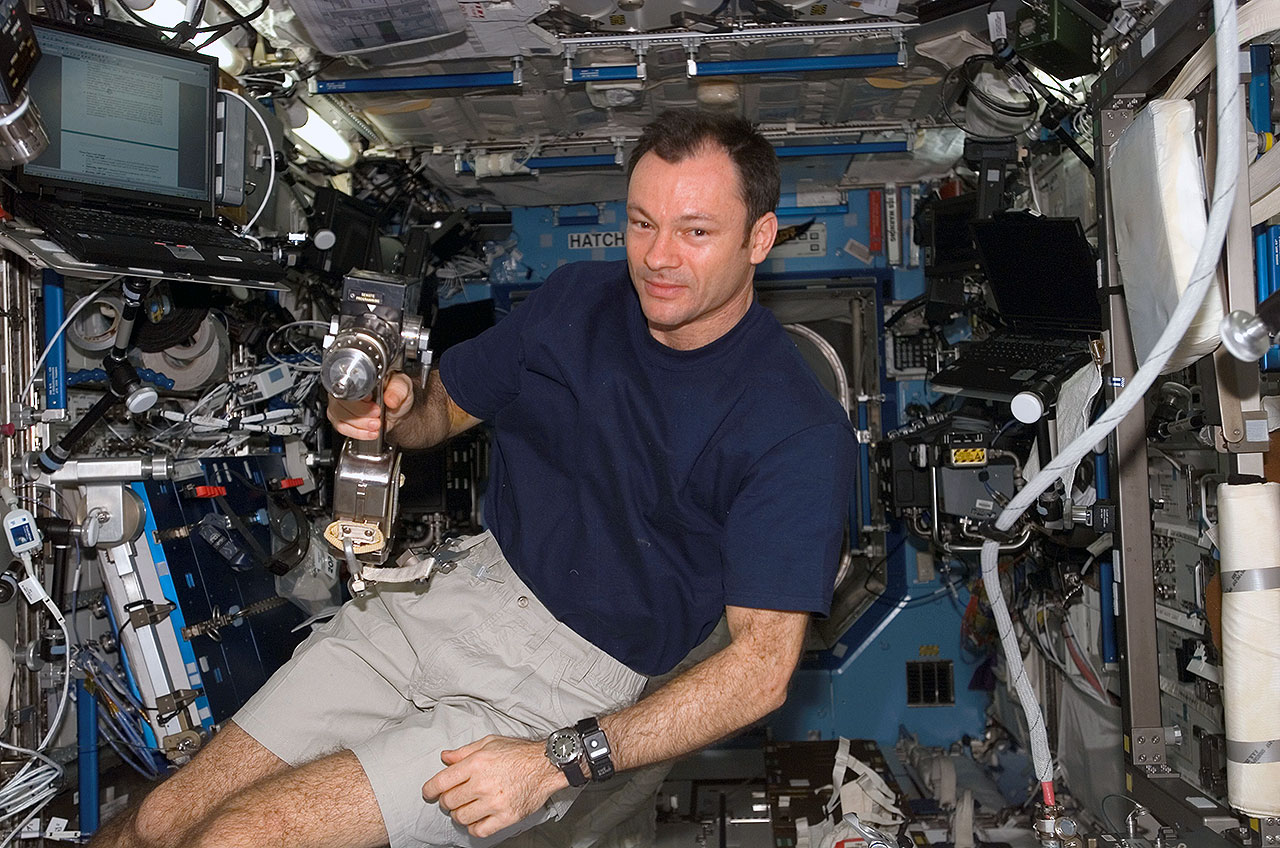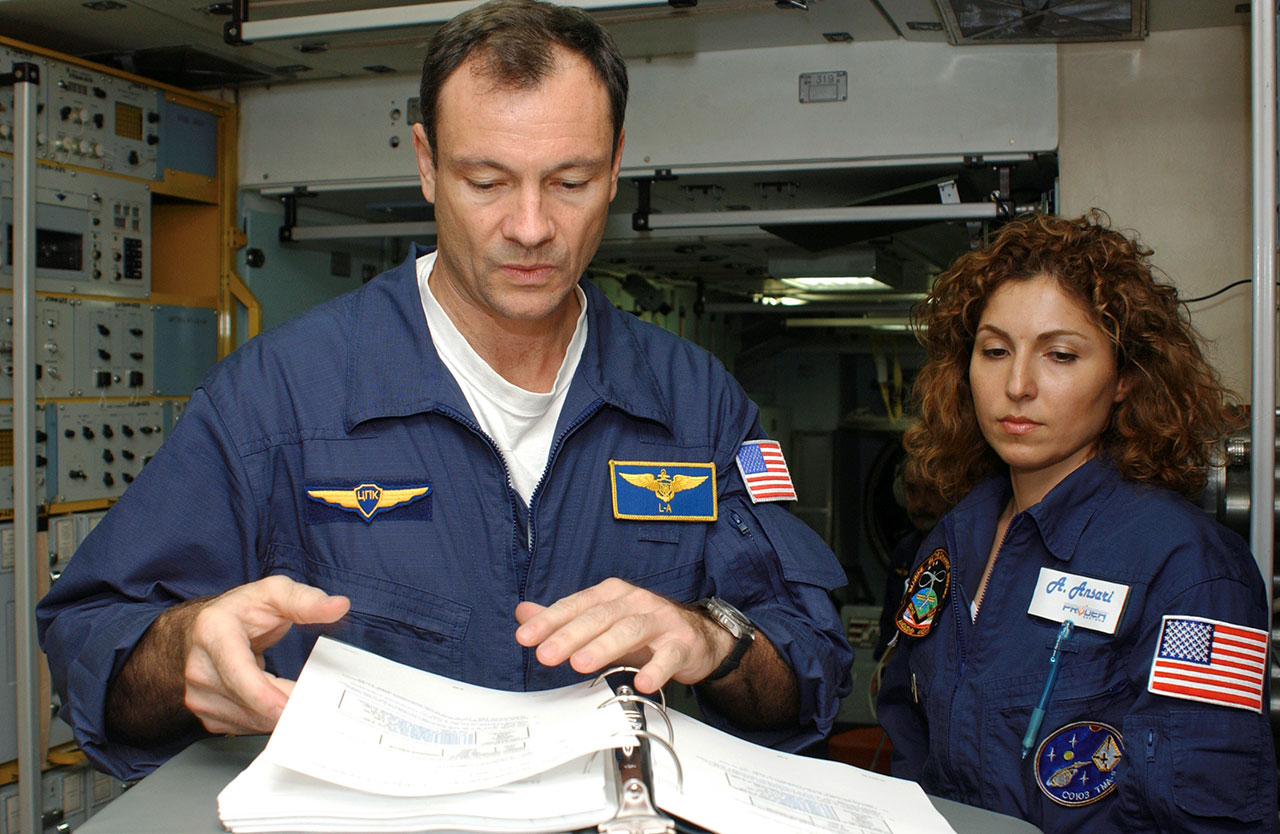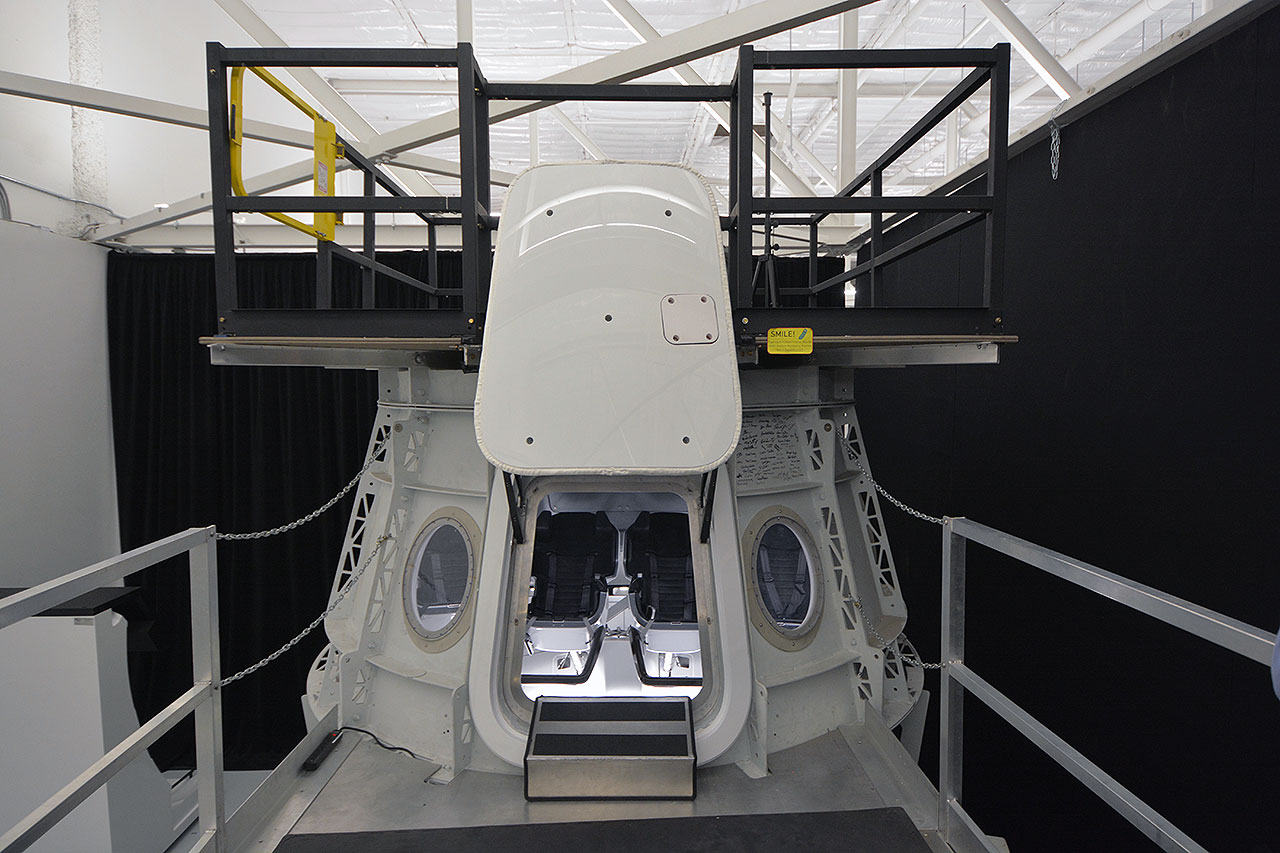Former NASA astronaut Michael Lopez-Alegria to return to orbit on Axiom private mission

Michael Lopez-Alegria had no plans to fly into space again. But should all go to plan, about a year from now, he will lead the first fully-private mission to the International Space Station (ISS), making history as the first former NASA astronaut to return to the orbital complex.
A veteran of four spaceflights, including three space shuttle missions and a stay on board the ISS, Lopez-Alegria was a member of NASA's astronaut corps for 20 years. When he retired from the agency in 2012, he had spent nearly 258 days in space, including an American record of more than 67 hours on 10 spacewalks.
In 2017, Lopez-Alegria joined Axiom Space, a private space services company that holds the first agreement with NASA to attach commercial modules to the ISS as a precursor to Axiom's own commercial space station. Before then, Axiom is planning a series of private missions to the orbital complex, working with clients such as actor Tom Cruise, who plans to film a movie on the ISS. The company's first launch, AX-1, is targeted for October 2021.
Related: SpaceX to fly private astronauts to space station for Axiom in 2021
Axiom has yet to reveal its client(s) for AX-1, but CEO and president Michael Suffredini, NASA's former space station manager, recently announced that Lopez-Alegria will be the mission's commander. Details are still being worked out and agreements still need to be signed, but the plan is for Lopez-Alegria to lead a crew of three on a SpaceX Dragon spacecraft for a 10-day flight to the ISS and back.
collectSPACE.com spoke with Lopez-Alegria about his new spaceflight assignment just days after another former NASA astronaut, Chris Ferguson, stepped down from flying on the first crewed flight of Boeing's Starliner spacecraft, targeted for next summer, citing family commitments.
collectSPACE (cS): You've moved up, by no action of your own, to being the first former NASA astronaut set to make a return to orbit since John Glenn flew on the space shuttle in 1998, a distinction held until recently by Chris Ferguson.
Get the Space.com Newsletter
Breaking space news, the latest updates on rocket launches, skywatching events and more!
Michael Lopez-Alegria: You have to tip your cap to a guy who's willing to put his family first, particularly since he's really been knee deep in the development of the CST-100 [Starliner] for a long time. He [Ferguson] is a real professional and I have nothing but the greatest respect for him.
The fact that I'm going to be, or it looks like I'm going to be, flying with Axiom is almost equally happenstance. When I first started having conversations with Suffredini over four years ago, I wanted to join the team with zero expectation or even consideration of flying in space. It was not part of the plan, nor part of the attraction to do it. I just wanted to join the team because I believe in what they're doing.

cS: So how did it come about that you went from being Axiom's director and then vice president for business development to becoming its first mission commander?
Lopez-Alegria: As we started marketing these flights to private astronauts, it became clear that they didn't want to fly by themselves, and when we looked around the room, there weren't very many people who had the experience and wanted to sit in that seat again.
That said, I think it makes perfect sense. NASA is more comfortable with the idea of an experienced person commanding a vehicle that's going to dock with the space station and it certainly seems to make a big difference to our customers.
cS: SpaceX has designed the Dragon to fly under normal situations autonomously, so if everything goes right, you won't have much to do on the ascent or descent back to Earth. So, as commander, what will be your responsibilities during the AX-1 mission?
Lopez-Alegria: First and foremost, will be just to keep the crew safe, and that really starts preflight and goes all the way through landing, but specifically while on board the Dragon and while we're on the ISS. These guys are going to be well trained and I feel they will not have much difficulty transitioning to life aboard the ISS.
I was lucky enough to fly with two of the previous spaceflight participants, Anousheh Ansari on the way up [to the space station] and Charles Simonyi on the way down, and so spent a week or so with each of them on the ISS. I was pleasantly surprised at how quickly they adapted and how professional they were with what we asked them to do. So with regards to commanding the mission, I think it's just a matter of being somebody who the crew can count on who they have confidence in and being a leader. With Dragon being fairly autonomous, I actually don't think that is going to take a whole lot of effort on my part. I think the biggest part will be in the preflight preparation and the training.

cS: You mention your 2006 flight on Russia's Soyuz TMA-9 spacecraft with privately-funded crew members Anousheh Ansari and Charles Simonyi. How did that mission inform your perspective on commercial spaceflight?
Lopez-Alegria: My experience with Anousheh, in particular, was seminal in the formation of my belief in commercial space. I'll say candidly that when I found out that I was going to be flying with a paying customer on that mission, TMA-9, I wasn't too thrilled with the idea. The ISS was still under construction and I thought people should be wearing hard hats and professionally trained and not able to go just because they were successful in life.
I really came to appreciate Anousheh's outlook on things, especially when we were on board the ISS and she was doing this brand new thing in 2006 called "blogging." I think there were hundreds of thousands, if not a million people who otherwise wouldn't care about what was going on in outer space who were paying attention. This idea, this seed of democratizing that experience, was planted then.
After I left NASA, I came to work for the Commercial Spaceflight Federation, which was largely, if not exclusively due to that experience with Anousheh. So I've gone from not wanting any to drinking the Kool-Aid to then pouring the Kool-Aid. I am a full believer now.
cS: Unlike Anousheh Ansari and a majority of the others who have flown privately-funded flights to space, you come to this mission with the foundation of being a veteran NASA astronaut, though by the time you fly it will be at least 14 years since your last launch. So do you have a sense of what your training for AX-1 will entail?
Lopez-Alegria: The training that all of us [on the AX-1 crew] will undergo is basically half ISS systems and living and working and surviving in space and half about the launch vehicle. I think I have a pretty good leg up on the first piece. Yes, it has been a long time, but I think based on what I'll be expected to do with regard to ISS systems, it will be fairly reduced from what I had to do when I was commanding an expedition [for NASA].
The launch vehicle piece is brand new and I'm very excited about it.
At NASA, you work hard to train, to understand things, but you're surrounded the whole time by people in that world. And it becomes — I don't want to say it becomes routine — but it just becomes part of your normal day-to-day life. Only after having left that world for a long time and talking to people who are not in that world a lot more, do you start to gain this appreciation for just how special that opportunity is — and then to get to go back and do it again? It's an amazing gift to be able to do that.
I think I appreciate it a thousand times more today than I did even before my first mission just because, having gone through it, having thought it was part of daily life and then realizing later that it was not, and then getting a second chance, it's a mulligan of a lifetime.

cS: Axiom has yet to reveal who you will be flying with, but have you already met them?
Lopez-Alegria: I've met them all virtually and I've spent some time person-to-person with one of them, but that's very much an artifact of COVID. We'd be in a completely different place if it weren't for that.
I would say I know one quite well. I'm very comfortable with what I know about the second and the third person a little bit less so, but it's early days still.
cS: What does your family think about you going back to space?
Lopez-Alegria: My ex-wife is excited for me and my son, who is 21 and could not have cared less about his dad being an astronaut when he was younger, now thinks it's pretty cool. The apple fell far from the tree and he's very much not an engineer or pilot type, so I'm not sure he'd want to come with me, but he's pretty excited about it.
cS: Lastly, what are your own personal goals for this flight? Granted, you'll be flying as an Axiom Space representative, but are there personal things you want to accomplish by going back to space?
Lopez-Alegria: When you go to see a rocket launch, people say don't take pictures because other people's pictures will be at least as good as yours and you really want to just live it and experience it. And that's what I'm hoping for. I don't want to make a long list of things to do. I really just want to soak it in.
I'm just so grateful for this opportunity. This seems like a gift from God and I just want to appreciate it. I really don't want to try to check any boxes, I just want to live it.
Follow collectSPACE.com on Facebook and on Twitter at @collectSPACE. Copyright 2020 collectSPACE.com. All rights reserved.
Join our Space Forums to keep talking space on the latest missions, night sky and more! And if you have a news tip, correction or comment, let us know at: community@space.com.

Robert Pearlman is a space historian, journalist and the founder and editor of collectSPACE.com, a daily news publication and community devoted to space history with a particular focus on how and where space exploration intersects with pop culture. Pearlman is also a contributing writer for Space.com and co-author of "Space Stations: The Art, Science, and Reality of Working in Space” published by Smithsonian Books in 2018.In 2009, he was inducted into the U.S. Space Camp Hall of Fame in Huntsville, Alabama. In 2021, he was honored by the American Astronautical Society with the Ordway Award for Sustained Excellence in Spaceflight History. In 2023, the National Space Club Florida Committee recognized Pearlman with the Kolcum News and Communications Award for excellence in telling the space story along the Space Coast and throughout the world.









